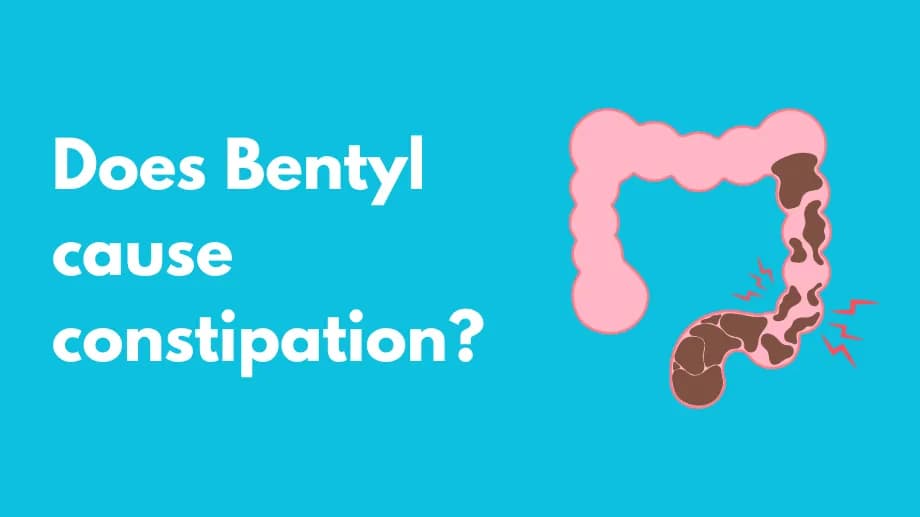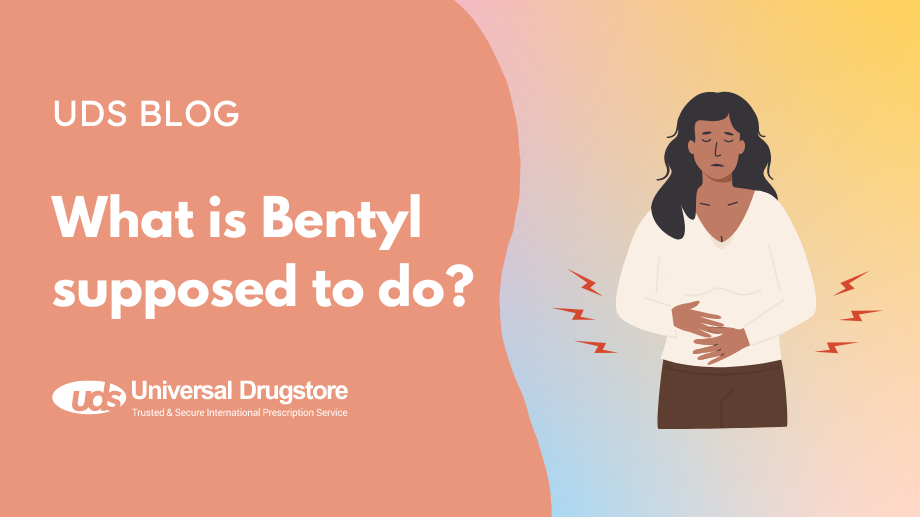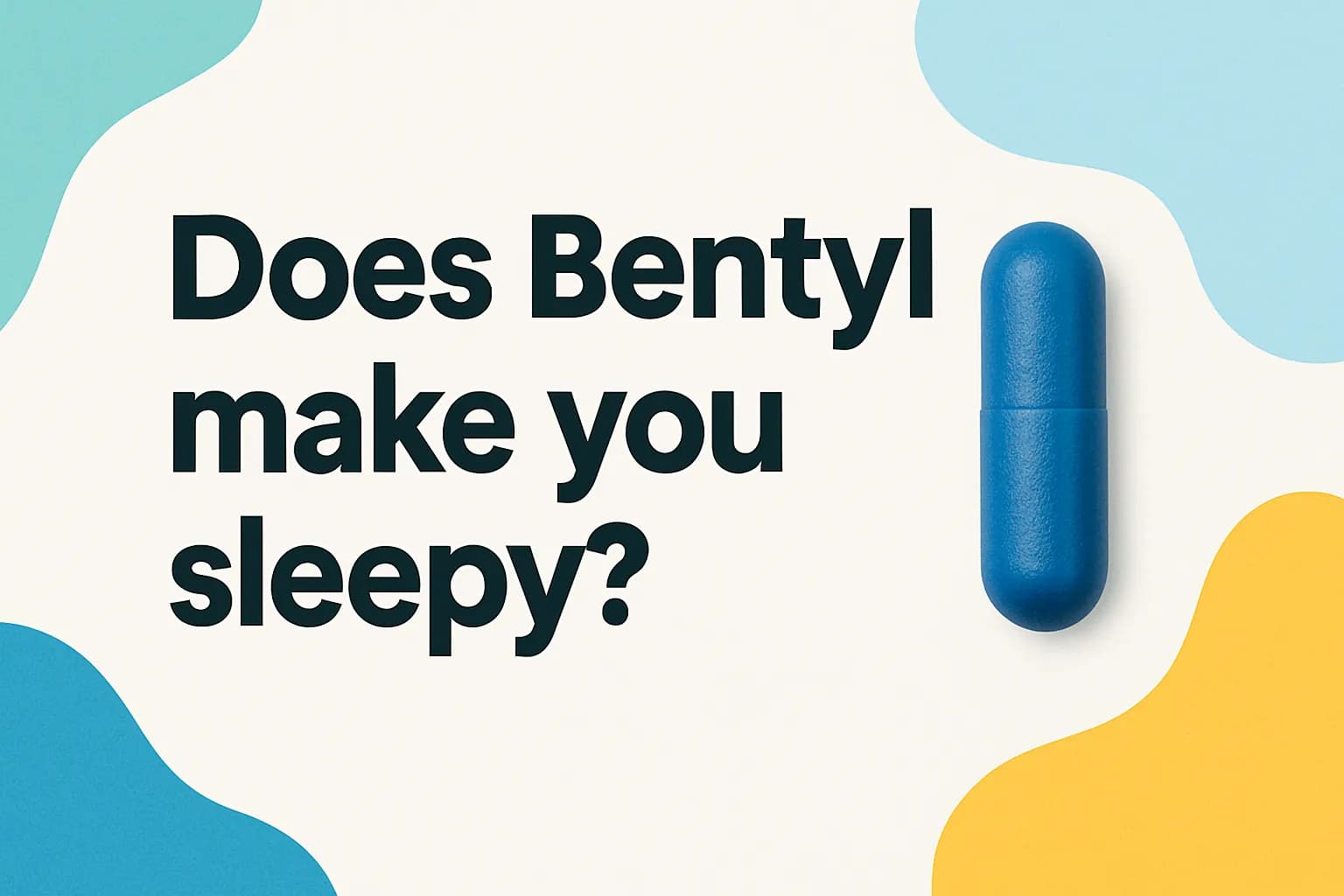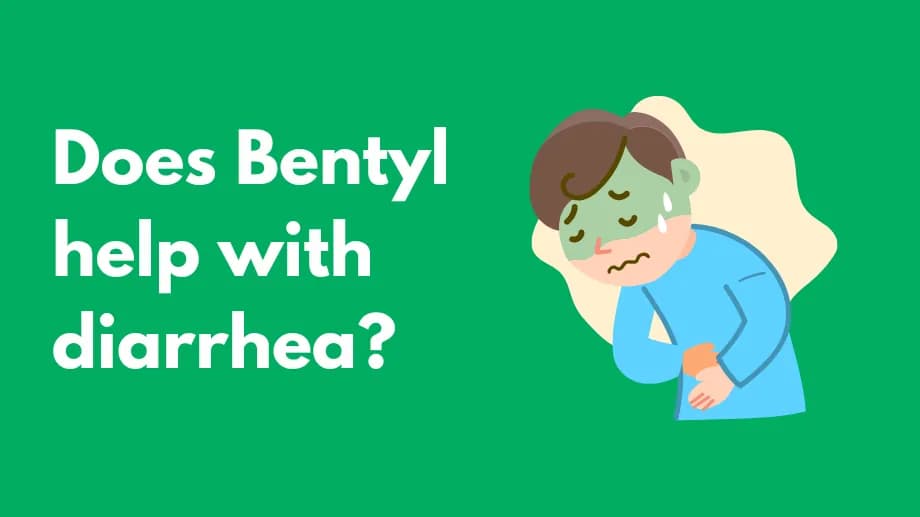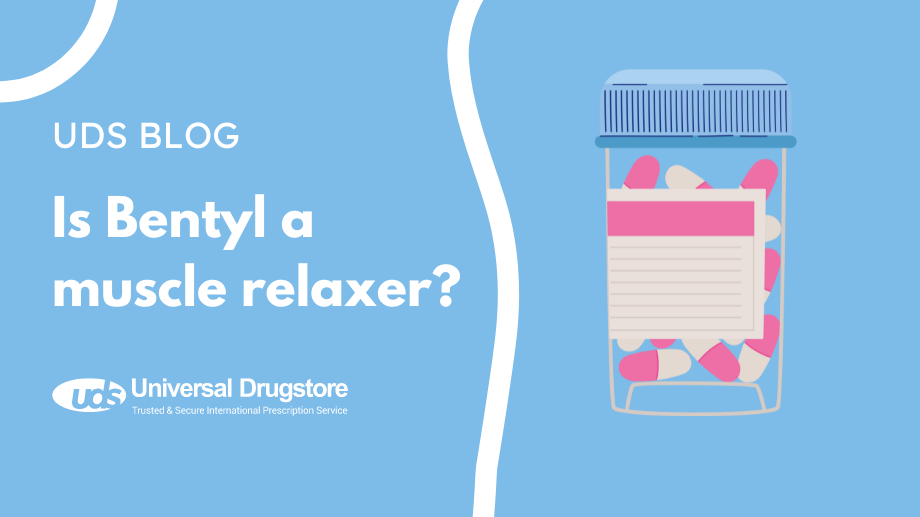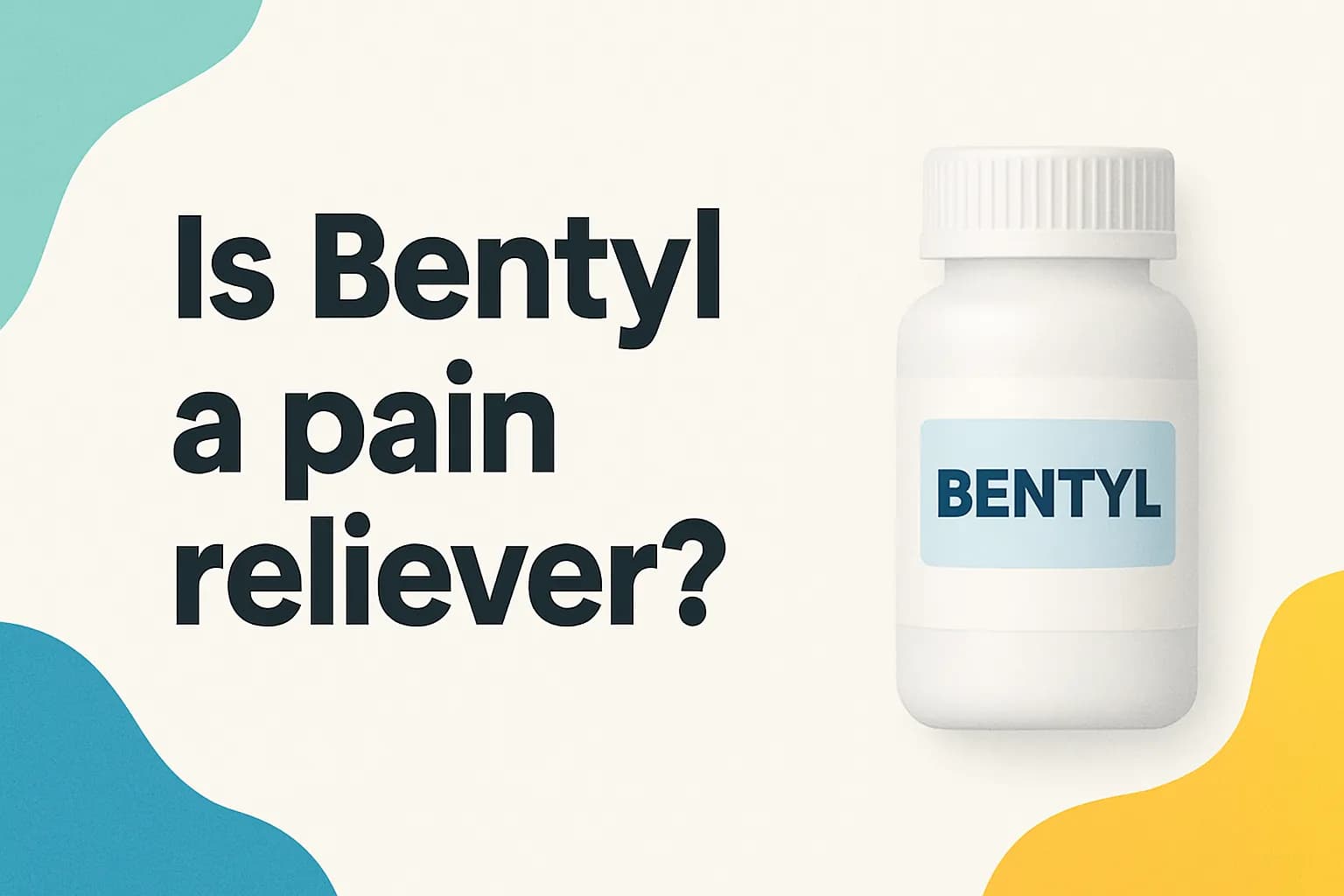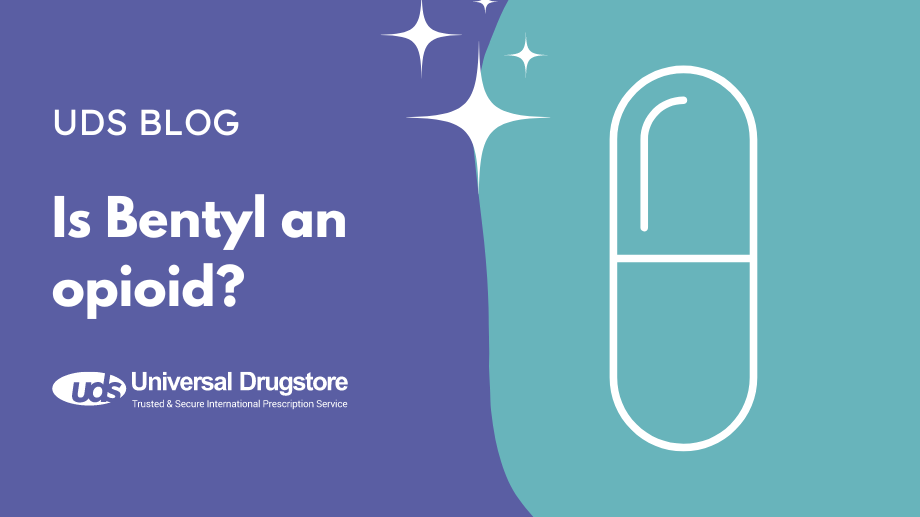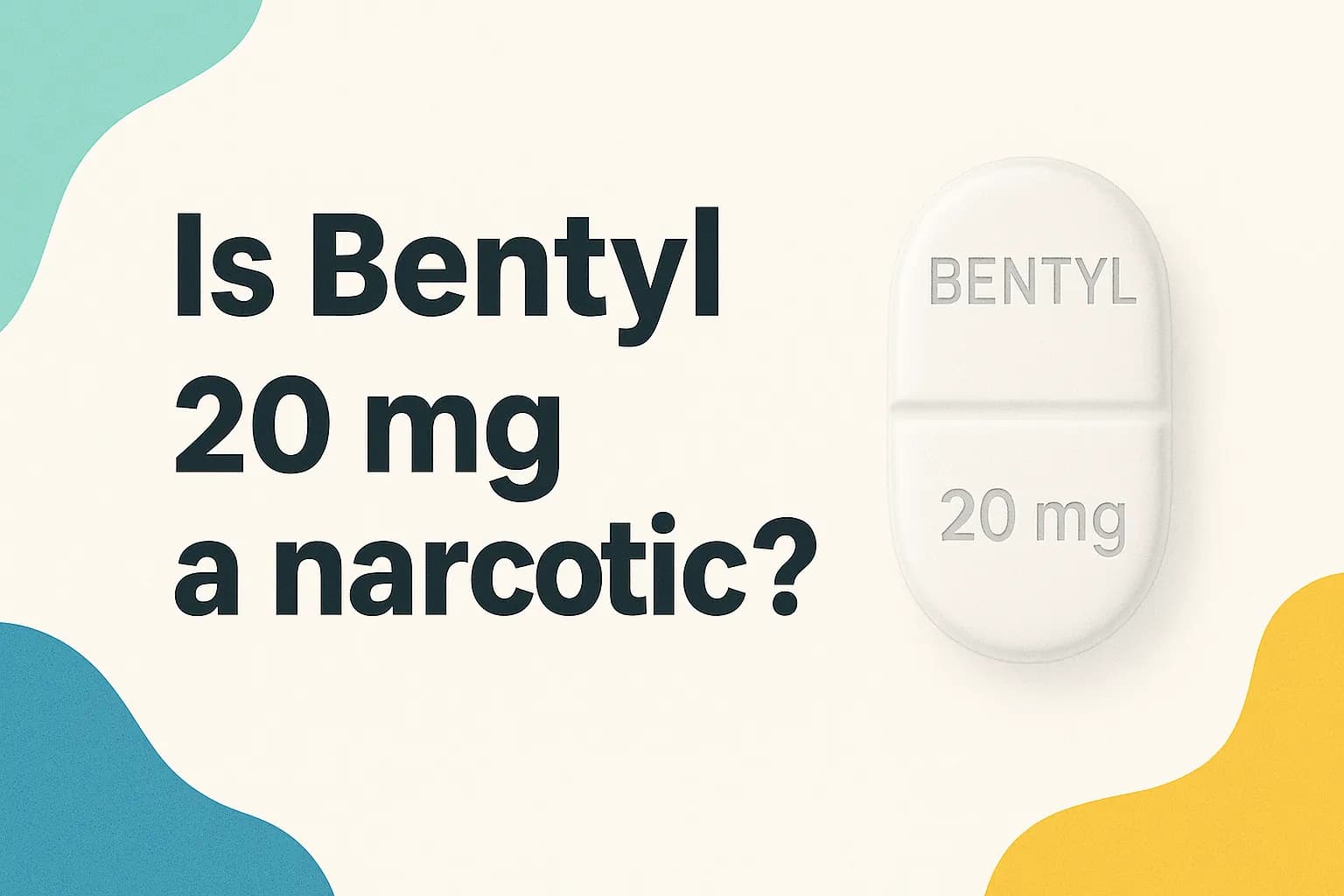What is Bentyl supposed to do?
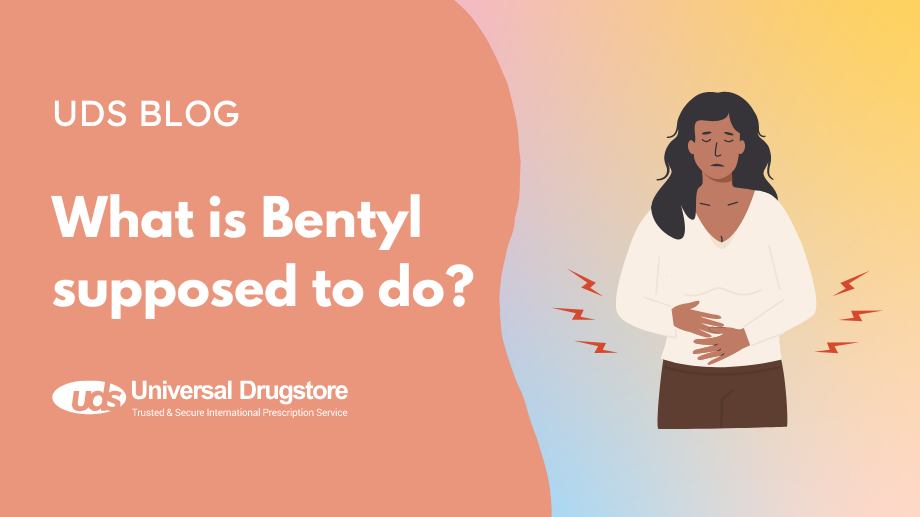
Bentyl (dicyclomine) is an anticholinergic drug used for the treatment of irritable bowel syndrome (IBS). IBS affects up to 5-10% of people worldwide and affects children and adults of both genders.
IBS is a disorder in which you have reoccurring issues with abdominal discomfort or pain that are associated in some way with your bowel movements. Typically, this abdominal pain or discomfort occurs along with diarrhea, constipation, or episodes of both. Bloating or distention (abnormal swelling) of your abdomen is also common, and other symptoms may be present as well. IBS does not damage your digestive tract or raise your risk for colon cancer. Most people can control their IBS symptoms by managing their diet, lifestyle, and stress. More severe symptoms can be treated with medication and counseling.
Bentyl is an anticholinergic and antispasmodic medication. It works by blocking a chemical called acetylcholine from attaching to receptors in your stomach and intestines. Typically, acetylcholine causes the muscles in your gastrointestinal tract (GI) to contract. By blocking acetylcholine, Bentyl relaxes the muscles in your stomach and intestines to relieve cramping if you have IBS.
Unfortunately, along with IBS symptom relief, Bentyl’s effect on the action of acetylcholine can also cause some severe unwanted side effects. It may be the right IBS medicine if you have certain medical issues, including heart, prostate, liver, and kidney conditions.
Read on as we discuss everything you need to know about Bentyl, including more information about how it works, its common side effects, drug interactions, and some other commonly asked questions.
Bentyl FAQs
What is dicyclomine?
Bentyl, whose active ingredient is dicyclomine hydrochloride, is a brand-name medication used to treat muscle spasms in your stomach or bowel. It relaxes muscle spasms by directly acting on the smooth muscle and indirectly by blocking the actions of a neurotransmitter called acetylcholine.
Bentyl is approved for use by the U.S. Food and Drug Administration (FDA) in treating IBS and other functional bowel disorders. These are conditions that affect your middle and lower intestines and cause chronic symptoms such as stomach pain, bloating, indigestion, irregular stools, diarrhea, and constipation. IBS is the most common type of functional bowel disorder.
What are the side effects of dicyclomine?
The most common side effects of Bentyl include:
- Dizziness
- Dry mouth
- Blurred vision
- Nausea
Some other less serious side effects of Bentyl that may occur include:
- Drowsiness
- Weakness
- Nervousness
Some people can experience serious side effects while using Bentyl that may require immediate medical attention. These include:
- Serious allergic reactions: skin rash, hives, swelling of the face, lips, tongue, and trouble breathing.
- Increased heart rate: which may worsen existing heart conditions.
- Mood changes: confusion, memory loss, hallucinations, euphoria.
- Decreased sweating: risk of heat stroke, especially with a fever.
- Severe muscle weakness: possible paralysis, particularly in people with myasthenia gravis.
- Trouble urinating: especially for those with prostate problems.
- Gut problems: such as intestinal blockage or severe ulcerative colitis.
These are not all of the possible adverse effects of Bentyl. Always seek medical advice from your healthcare provider for any questions or concerns. You can also report adverse effects to the Food and Drug Administration at www.fda.gov/medwatch or call 1-800-FDA-1088.
What drugs interact with Bentyl?
Bentyl may interact with other medications, supplements, or over-the-counter drugs, which could alter how they work or increase the risk of side effects. Let your healthcare provider know if you’re taking:
- Antacids
- Antiarrhythmic medications like Pacerone (amiodarone)
- Antidepressants (tricyclics, MAOIs)
- Benzodiazepines like Valium (diazepam)
- Antipsychotics like Compazine (prochlorperazine)
- Corticosteroids like prednisone
- Drugs that affect stomach emptying like metoclopramide
- Glaucoma drugs like Vyzulta (latanoprostene)
- Gocovri (amantadine)
- Antihistamines such as diphenhydramine or doxylamine
Who should not use Bentyl?
If you have any of the following conditions, Bentyl may not be safe for you. Inform your healthcare provider if you have:
- Myasthenia gravis
- Glaucoma
- Blockage in your urinary tract
- Blockage in your stomach or intestines
- Severe ulcerative colitis
- Reflux esophagitis or severe heartburn
- Are currently breastfeeding
- Enlarged prostate (benign prostatic hyperplasia)
What should you do if you miss a dose of Bentyl?
If you miss a dose of Bentyl, take it as soon as you remember. If it’s almost time for your next dose, skip the missed dose and continue with your regular schedule. Do not double the dose to catch up.
What should you do if you accidentally take too much Bentyl?
If you or someone else takes too much Bentyl, seek emergency medical help immediately. Call 911 or contact a Poison Control center at 800-222-1222.
How do you store Bentyl?
Store Bentyl at room temperature between 68°F to 77°F (20°C to 25°C). It can be temporarily kept between 59°F to 86°F (15°C to 30°C) when transporting. Keep it in a cool, dry place, away from heat and freezing temperatures.
Related Medications
- Levsin SL (hyoscyamine sulfate)
- Amitiza (lubiprostone)
- Linzess (linaclotide)
- Viberzi (eluxadoline)
- Xifaxan (rifaximin)
- Imodium (loperamide)
Sources
- Dicyclomine hydrochloride. DailyMed. Accessed June 17, 2024.
- Irritable bowel syndrome. National Institute of Diabetes and Digestive and Kidney Diseases. Accessed June 17, 2024.
- Dicyclomine. Medscape. Accessed June 17, 2024.
- Page JG, Dirnberger GM. Treatment of the irritable bowel syndrome with Bentyl (dicyclomine hydrochloride). J Clin Gastroenterol. 1981 Jun;3(2):153-6. doi: 10.1097/00004836-198106000-00009. PMID: 7016973. Accessed June 17, 2024.
